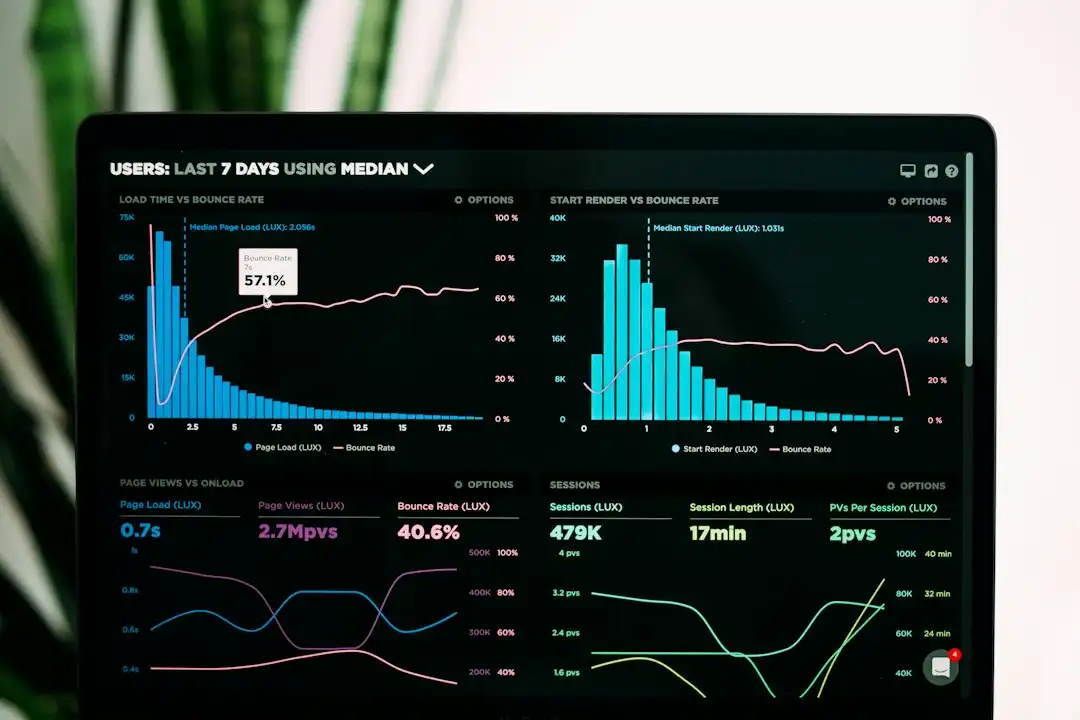The roles of Marketing Analyst and Data Analyst are both analytical in nature, but they serve different purposes.
You might love marketing, or you might love data in general; either way, you love analyzing, am I right?
Whilst both career paths involve crunching numbers and managing metrics, there are some clear differences between both.
A marketing analyst’s primary focus is to understand consumer behavior and preferences, while a data analyst works with a wider range of data to help businesses make informed decisions.
Generally, marketing analysts typically work in the marketing department of a company, while data analysts can work in any industry that requires data analysis.
Their responsibilities also differ, with marketing analysts focusing on market trends and consumer insights, and data analysts working with large sets of data to find patterns and trends.
This article will delve into the distinctions between the two roles, exploring their respective responsibilities, skills, and career prospects.
Understanding the differences will enable you to make an informed decision about which career path aligns with your interests and strengths.
Are you ready?
What is a Marketing Analyst?
A marketing analyst is a professional who works with data related to marketing efforts to identify trends, interpret results, and make data-driven decisions to improve the efficiency and effectiveness of marketing campaigns.
Their role is crucial in helping businesses understand consumer behavior, optimize their marketing strategies, and drive growth.
Marketing analysts work with various data sources, such as sales figures, customer demographics, website traffic, and social media metrics. They use tools like Excel, Tableau, and Google Analytics to analyze and visualize the data.
The insights they provide help marketing teams target the right audience, create compelling messages, and allocate resources effectively.
A typical day in the life of a marketing analyst may include:
- Gathering and organizing data from multiple sources
- Creating reports and dashboards to track key performance indicators (KPIs)
- Analyzing campaign results and identifying areas for improvement
- Collaborating with other team members to develop data-driven marketing strategies updated on industry trends and best practices
- Presenting findings and recommendations to stakeholders
Whilst similar, a data analyst’s day is a little different, let us explain.
What is a Data Analyst?
A data analyst is a professional who works with data to extract valuable insights and inform decision-making processes within an organization.
They are skilled in collecting, organizing, and interpreting data from various sources to help businesses understand their performance, identify trends, and make informed choices.
Data analysts use statistical software, programming languages, and data visualization tools like Python, R, SQL, and Power BI to analyze and present data in a clear and meaningful way.
Their work often involves cleaning and processing raw data, performing statistical analyses, and creating reports and dashboards to communicate their findings.
Furthermore, data analysts play a critical role in helping organizations optimize their operations, improve efficiency, and achieve their goals.
A typical day in the life of a data analyst can include:
- Collecting and cleaning data from multiple sources
- Performing statistical analyses to identify patterns and trends
- Creating data visualizations to communicate findings
- Collaborating with other team members to solve complex problems
- Staying updated on the latest data analysis techniques and tools
- Presenting insights and recommendations to stakeholders
Marketing Analyst vs Data Analyst: Key Differences

Now that we have discussed the roles of marketing analysts and data analysts, let’s explore some of the key differences between the two positions.
Understanding these distinctions will help you determine which career path aligns with your skills, interests, and professional goals.
They also might make you realize that you’d prefer not to go down either path and instead travel the world or become a gardener or a florist!
Now, the table below highlights the key differences between a marketing analyst and a data analyst:
1. Focus of Analysis

A marketing analyst focuses on analyzing data related to consumer behavior, marketing campaigns, and sales performance.
They aim to identify trends and patterns that can help improve the effectiveness of marketing strategies and drive business growth.
On the other hand, a data analyst works with a broader range of data, including operational data, financial data, and other business-related data.
Their analysis helps organizations make informed decisions across various functions, not just marketing.
It really comes back to the data you’re interested in.
I generally find that when it comes to the world of data analysis, if you’re interested in the actual subject, you are going to have a far more enjoyable and successful career!
2. Skill Set

Marketing analysts need to have a solid understanding of marketing principles, consumer behavior, and market research techniques.
They also need to be proficient in using marketing analytics tools such as Google Analytics and Google Search Console to measure and track the performance of marketing campaigns.
Ideally, they should be comfortable with software like SEMrush & Ahrefs and any scheduling/,metric producing marketing software too
Data analysts, on the other hand, require strong quantitative and analytical skills. They must be proficient in programming languages like Python and R, as well as database management and data visualization tools like Power BI, or Tableau.
Lastly, data analysts should also be comfortable working with large datasets and have a solid understanding of statistical analysis techniques.
Now, let’s talk about industry.
3. Industry
Marketing analysts are primarily employed in the marketing and advertising industry (naturally), where their main focus is to optimize marketing strategies and campaigns.
They may also work for companies in industries that heavily rely on marketing efforts, such as consumer goods or e-commerce.
Data analysts, on the other hand, have a more diverse range of industries to choose from.
They can work in finance, healthcare, technology, and many other sectors, as their skills are applicable to a wide variety of business functions beyond just marketing.
In fact, most industries you can think of can benefit from data analysis in some way, shape, or form.
4. Job Titles
In both industries, there are a range of job titles that you can look out for, depending on your level of experience.
Job titles for marketing analysts often include “Marketing Analyst,” “Market Research Analyst,” “Digital Marketing Analyst,” or “Consumer Insights Analyst.”
On the other hand, data analyst job titles may include “Data Analyst,” “Business Analyst,” “Operations Analyst,” “Financial Analyst,” or “Business Intelligence Analyst.”
The best thing is to be open-minded and make the move towards an industry or company you love.
But, if you’re just starting out, don’t be precious, just get your “foot in the door” and start learning and gaining some experience!
By now, you should have a good idea about the difference between a marketing and a data analyst. So the big question is upon up, “which is better?”
Which One is Better: Marketing Analyst or Data Analyst?

When considering whether a marketing analyst or a data analyst is the better career choice, it ultimately depends on your interests, skills, and career goals.
Both roles offer unique opportunities and challenges, and each can be rewarding in its own right.
Let’s dive into each option and explore a little further.
Why a Marketing Analyst Might Be a Better Career Option
If you have a strong passion for marketing and enjoy understanding consumer behavior, a career as a marketing analyst may be the better choice for you.
As a marketing analyst, you will have the opportunity to work closely with marketing teams, contribute to the development of creative campaigns, and see the direct impact of your work on consumer engagement and brand success.
This role may also offer a more dynamic and fast-paced work environment, with a focus on staying ahead of market trends and competitor analysis.
Often, people skills will play a larger part in this career; you need to be prepared to work in a team environment and get collaborating.
Now, let’s dive into the world of data!
Why a Data Analyst Might Be a Better Career Option
On the other hand, if you have a keen interest in data analysis and a strong aptitude for quantitative analysis, a career as a data analyst may be the better fit for you.
Data analysts often work with a wider variety of data sources and can apply their skills to various industries, making this role more versatile in terms of career opportunities.
As a data analyst, you would typically focus on problem-solving and critical thinking, which can be appealing if you enjoy tackling complex challenges and making data-driven recommendations.
Also, a data analyst role can often be more suited to us introverted types.
Let’s wrap this up.
Wrap Up
By now, you know that both marketing analysts and data analysts play critical roles in helping organizations make informed decisions and achieve their business objectives.
While there are differences between the two roles, both offer exciting career opportunities for individuals with a passion for analysis and a commitment to driving success through data.
Whether you choose to pursue a career as a marketing analyst or a data analyst or explore a hybrid role that combines elements of both, the key is to continue learning and growing in the ever-evolving field of data analytics.
Have fun crunching numbers and managing metrics!
More of a video type of learner? Check out this video; Tom nails the job description!
Frequently Asked Questions
Now, let’s look at some frequently asked questions you may have when comparing marketing analysts to data analysts.
Is marketing analyst a data analyst?
Marketing analysts and data analysts both work with data, but their focus areas are different.
Marketing analysts primarily work with data related to consumer behavior and marketing campaigns, while data analysts work with a wider range of data across various business functions.
What does a marketing analyst do?
A marketing analyst is responsible for analyzing data related to consumer behavior, market trends, and marketing campaigns.
They use this data to identify insights, make data-driven recommendations, and optimize marketing strategies to achieve business objectives.
What does a data analyst do?
A data analyst is responsible for collecting, organizing, and analyzing data to extract valuable insights.
They work with various data sources, apply statistical analysis techniques, and create visualizations to help businesses make informed decisions and solve complex problems.
What are the key differences between marketing and data analysts?
Marketing analysts focus on consumer behavior, market trends, and marketing campaign performance.
They typically work in the marketing department of a company and use tools like Google Analytics and Excel.
Data analysts work with a broader range of data, including operational, financial, and sales data.
They can work in any industry and use programming languages like Python and R, as well as data visualization tools like Tableau and Power BI.
Which career path is more lucrative: marketing analyst or data analyst?
Both career paths can be lucrative, but the earning potential may vary based on factors such as industry, location, and experience.
Data analysts may have a slight edge in terms of earning potential due to their versatility and the high demand for data-related skills in various industries.
What skills are required for a marketing analyst?
marketing analysts need strong analytical skills, knowledge of marketing principles, and the ability to interpret data.
They should also be proficient in using marketing analytics tools and have excellent communication skills to present findings and make recommendations.
What skills are required for a data analyst?
Data analysts need strong quantitative and analytical skills, proficiency in programming languages, and a solid understanding of statistical analysis techniques.
They should also be skilled in using data visualization tools to communicate findings effectively.
Additionally, data analysts should have problem-solving abilities and the capacity to work with large datasets.
How can one transition from marketing analyst to data analyst?
To transition from a marketing analyst to a data analyst, it’s essential to acquire the necessary technical skills, such as proficiency in programming languages and statistical analysis techniques.
Seeking additional training or certifications in data analysis can help you gain the expertise needed for a successful transition.
It’s also beneficial to build a strong portfolio showcasing your data analysis projects and to network with professionals in the data analytics field to gain insights and opportunities.











